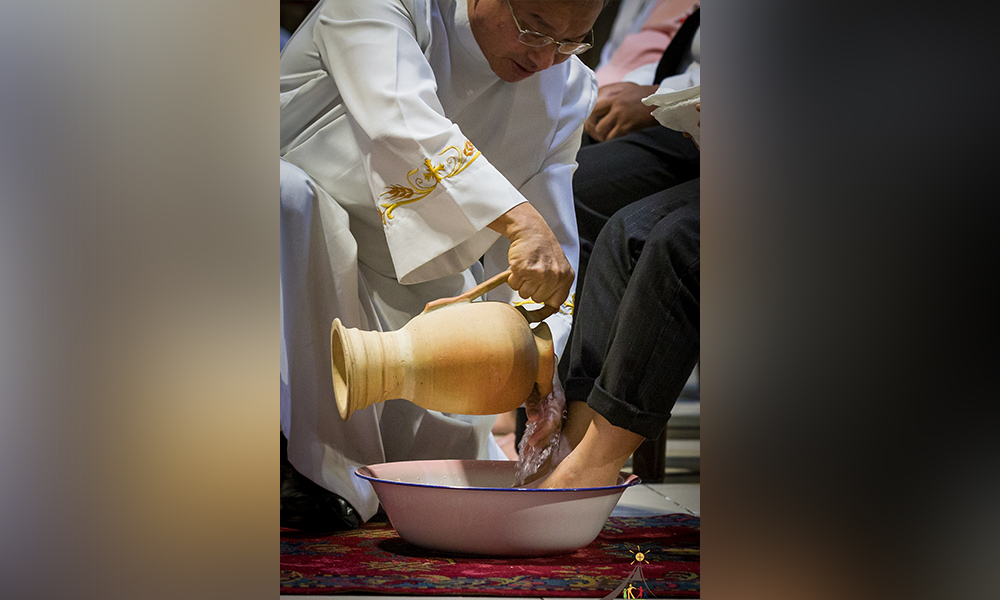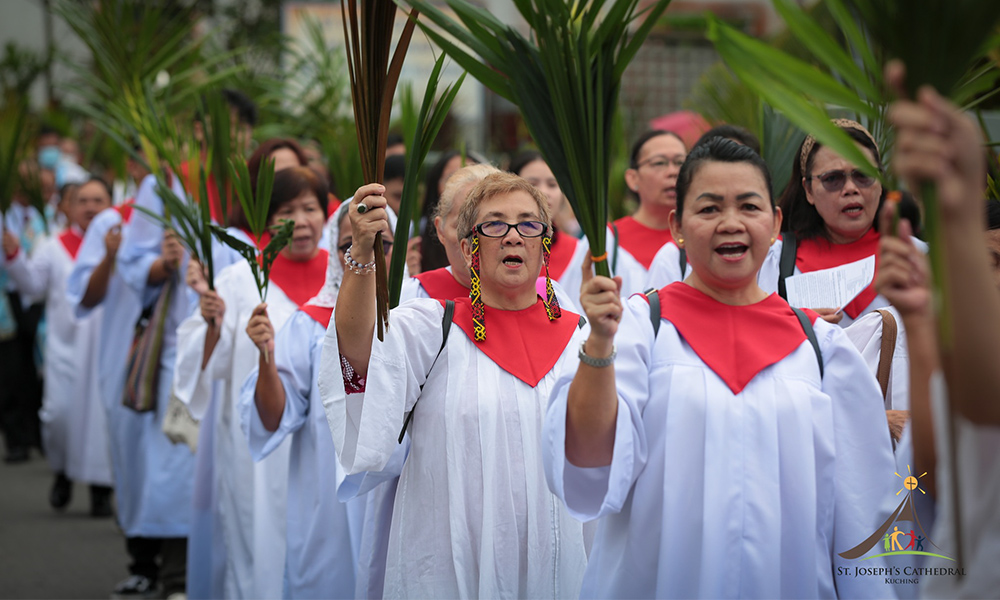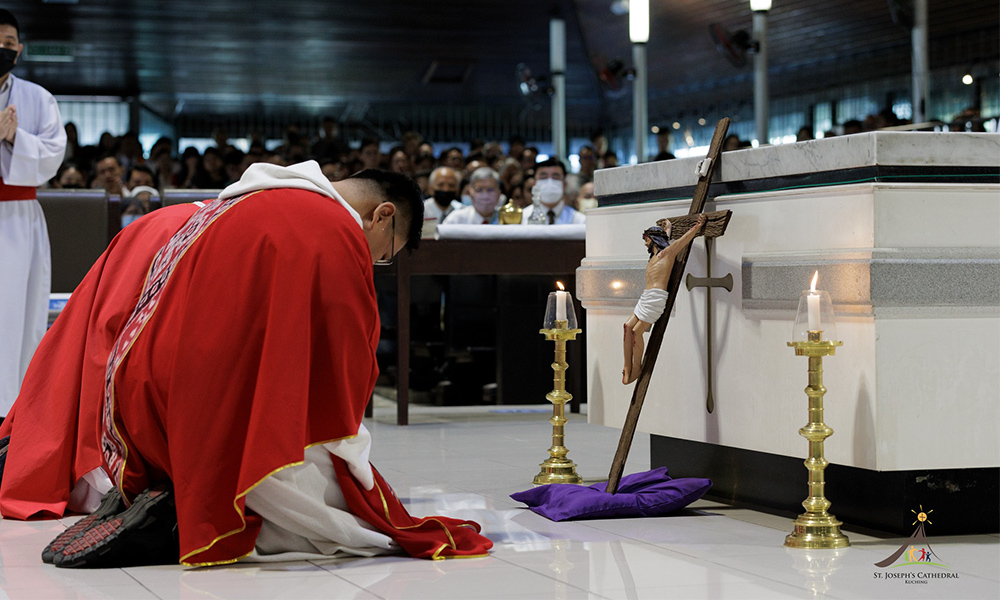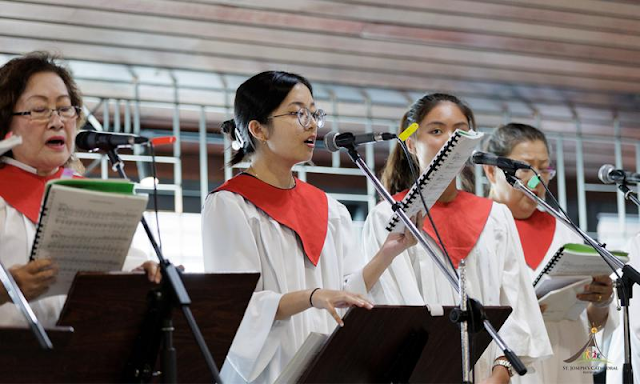THE true meaning of Easter is not chocolates and lambs or bunnies and eggs. That is Easter as the world sees it - but still, such little gifts to celebrate an auspicious day are not out of place.
Today, the whole of Christendom wakes up to celebrate a new dawn of peace, brotherhood, and love for one another with a God resurrected from a dingy sepulchre - where death was defeated.
With death defeated, a moral victory over sin and transgressions against humanity rises on the eastern horizon as the new season of Eastertide comes to heal.
The time is now, for us to put away Good Friday’s “Crown of thorns” and embrace the new dawn of harmony as people of one nation, as Malaysians from varied ethnic groups and as one family cocooned snugly in the shades of multiculturalism.
This has been how our Malaysia has always been, so strikingly novel and celebrated with the colours of Déjà vu.
However, it is regrettable that racial and religious intolerance also continue to rear its ugly head in the country from time to time, with recent highly strung acts further exacerbating tensions and divisions within society.
More recently, Malaysians were subject to yet another unhappy episode of sensitive narratives and dangerous rhetoric flying across the racial and political divide involving people and politicians.
It all started over the discovery of certain wearable merchandise in the country bearing the word “Allah”.
This happened on the sixth day of the fasting month of Ramadan, which for Muslims is a hallowed and sacred period in their calendar.

This incident should not have happened but it did, propelling some irresponsible people to even firebomb two outlets of the retail chain where the offending merchandise was discovered.
Each time such incidents happen, the “crown of thorns” is unleashed by the offended party upon the perpetrators.
These acts not only showcase the ignorance and insensitivity of certain individuals but also highlight the need for greater understanding and respect for diversity in the country - that to create religious sensitivities is wrong and to take the law into one’s own hands is also a criminal offence.
Anwar’s good counsel
Prime Minister Anwar Ibrahim, to ease the tension among the Muslims in the country, called for action to be taken against the perpetrators according to the provisions of the law - but he counselled that the law and the offended community must not go overboard in dealing with the unpalatable mischief.
This was Anwar’s good counsel and it was timely and appropriate.
While Muslims commenced their fasting month in mid-March, Catholics, Anglicans and other mainstream Christian denominations worldwide were already mid-way through their period of Lent, a 40-day sojourn of fasting, abstinence, and almsgiving - a spiritual practice similar to Ramadan.
This 40-day period culminated with Palm Sunday last Sunday, followed by the Holy Week which culminated today with Easter Sunday.
During the Holy Week, intense rituals such as the washing of the feet on Holy Thursday, the adoration of the Cross on Good Friday, and Easter Vigil or Holy Saturday with the celebration of the mass, and the final closure of the 40 days of Lent bestowed those moments of ethos and pathos to clergy and congregation.

Truly, it was a moving moment when the choir sang the Exultate last night before the Paschal candle as a sign of rejoicing with the Risen Lord. The bells in the belfry too rang on continuously, when the choir struck out the high notes of the Gloria and sentiments of “alleluia” were felt all around in the pews.
While Lent’s beautiful traditions played out in the churches of Sarawak - the erstwhile inter-faith, inter-communal bonding among Sarawak’s multi-ethnic communities crystallised elsewhere - cutting an amicable dash for the seasons of Ramadan and Lent.
Breaking fast together on Good Friday
Perhaps, Kuching Archbishop Reverand Simon Poh may have unwittingly chartered a new record in history by being the first senior Catholic clergy to break bread - or break the Ramadan fast - on Good Friday with a community of Muslims and people of other faiths.
A similar event may have occurred elsewhere, but perhaps never on Good Friday.
Speaking to Malaysiakini, Poh said: “A few days ago, on Good Friday, I was invited by the State Islamic Information Centre (IIC) for Iftar-Buka Puasa with other Muslim, Bahai, Buddhist, Hindu, Sikh, Taoist, and Christian leaders of other denominations.”
“During the conversation at the table, we talked about fasting, the various religious celebrations around this time - Palm Sunday, Good Friday and Easter for Christians, Bahai Naw-Rúz New Year, Ching Ming Tomb Festival, and Taoist Temple Processions.
“It was a time of fellowship, friendship, and building up of mutual understanding and respect for each other.
“As the buka puasa was on the evening of Good Friday, I shared that Catholics were also fasting and abstaining from meat that day. I also fasted in solidarity with Muslims that whole day.
“As I was keeping abstinence, the CEO of the IIC Hajah Asmah kindly indicated to me the non-meat dishes on the table. It was indeed a very beautiful moment of coming together with Muslims and the people of other faiths to share the buka puasa fellowship meal as friends.”

Poh also said: “On behalf of the Vatican City of Rome, I presented to IIC a message to Muslims from the Vatican Dicastery for Interreligious Dialogue, entitled: ‘Message for the Month of Ramadan and Id Al-Fitr 1445 H/ 2024 AD Christian and Muslims: Extinguish the Fire of War and Light the Candle of Peace’.”
An extract of the Vatican message reads: “We look to the Almighty as God of peace, the source of peace, who especially loves all those who devote their lives to the service of peace. Let us join in extinguishing the fires of hatred, violence, and war, and instead light the gentle candle of peace, drawing upon resources for peace that is present in our rich human and religious traditions.”
In his Easter message, Poh said for Christians, their faith in Christ has to be expressed concretely by loving God and being at the service of our neighbours by contributing to the “common good” of society and nation-building.
“We look to the Almighty as God of peace, the source of peace, who especially loves all those who devote their lives to the service of peace.
“On behalf of my brother Bishops, I wish all Christians the blessed joy of Easter. And to our brothers and sisters of neighbouring religions and friends of goodwill, peace, joy, and hope as we work together to make our nation and our world a better place for everyone.”
Poh’s Easter message was directed to all Sarawakians, irrespective of religious beliefs or racial status - especially his words: “As we work together to make our nation and our world a better place for everyone” rings in a truth that has always been a reality among the 28 ethnic groups in Sarawak who live and celebrate life in a fraternity of love, joy, and peace.
Peaceful coexistence
Take this, for example: Standing less than 100m apart, in the vicinity of the Lutong bazaar in Miri are the “Masjid An Naim” and “The Good Shepherd Catholic Church”.
On Fridays, the church will open its gate to allow Muslims to park their vehicles during prayer time - while on Sundays, the mosque will reciprocate by opening its gate to allow church-goers to park their cars in its compound.
Being next-door neighbours, the parishioners of the church and the Muslim faithful from the mosque come together on special occasions like Christmas and Hari Raya. They will host joint gatherings and the special bond developed between them has won praise from locals and visitors to Miri.
It is also not unusual for both the mosque and church committees to share whatever facilities and occasions among themselves - as it comes so naturally to them that it is part of their daily way of life.

The fact that Christians and Muslims here could hold joint Christmas and Hari Raya gatherings and make it a very special tradition shows that Sarawakians are indeed one big family and this is not just seen in slogans like “1Malaysia” but lived in their daily lives.
Sarawak on Borneo Island has no official religion legally etched in its constitution. The state has never witnessed the spectre of a fragmented community in its history.
Any reason to rebel, revolt and be unruly on matters about race and religion among its people is not likely to loom on its shores - way above the ordinary scale, with which we measure events elsewhere.
This is as far as the natural sentiments of placidity remain intact in the DNA of the 28 ethnic groups with everyone professing different faiths and beliefs, blissfully living in the land.
In the Land of the Hornbill, the concept of communal peace is the raison d’etre - the birdsong - through which everybody makes space for their neighbours, just so that no one will have to wear the “crown of thorns”. - Mkini
JOSEPH MASILAMANY is a veteran journalist.
The views expressed here are those of the author/contributor and do not necessarily represent the views of MMKtT.

No comments:
Post a Comment
Note: Only a member of this blog may post a comment.